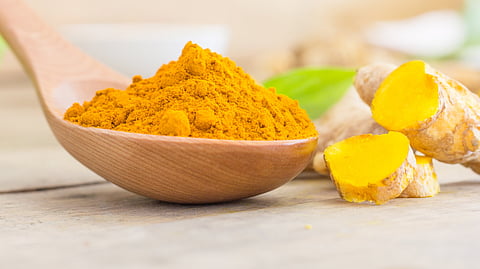According to a study published in the journal Liver Transplantation, the incidence of supplement-related liver failure requiring a transplant has increased eightfold in the United States between 1995 and 2020. This alarming statistic underscores the urgent need for increased awareness and regulation in the herbal supplement industry.
The Allure of Turmeric: A Popular Remedy
In a world where natural remedies often take center stage, turmeric pills have gained immense popularity for their purported anti-inflammatory properties. Many turn to this golden spice, inspired by social media influencers and health gurus, convinced that they hold the key to better health.
A Troubling Transformation
Katie Mohan, 57, started her journey with turmeric supplements in March, captivated by promises of relief from inflammation and joint pain. Unfortunately, her excitement soon morphed into a battle against alarming health issues. Just weeks after beginning her regimen, she was plagued by debilitating stomach pain, nausea, and fatigue.


